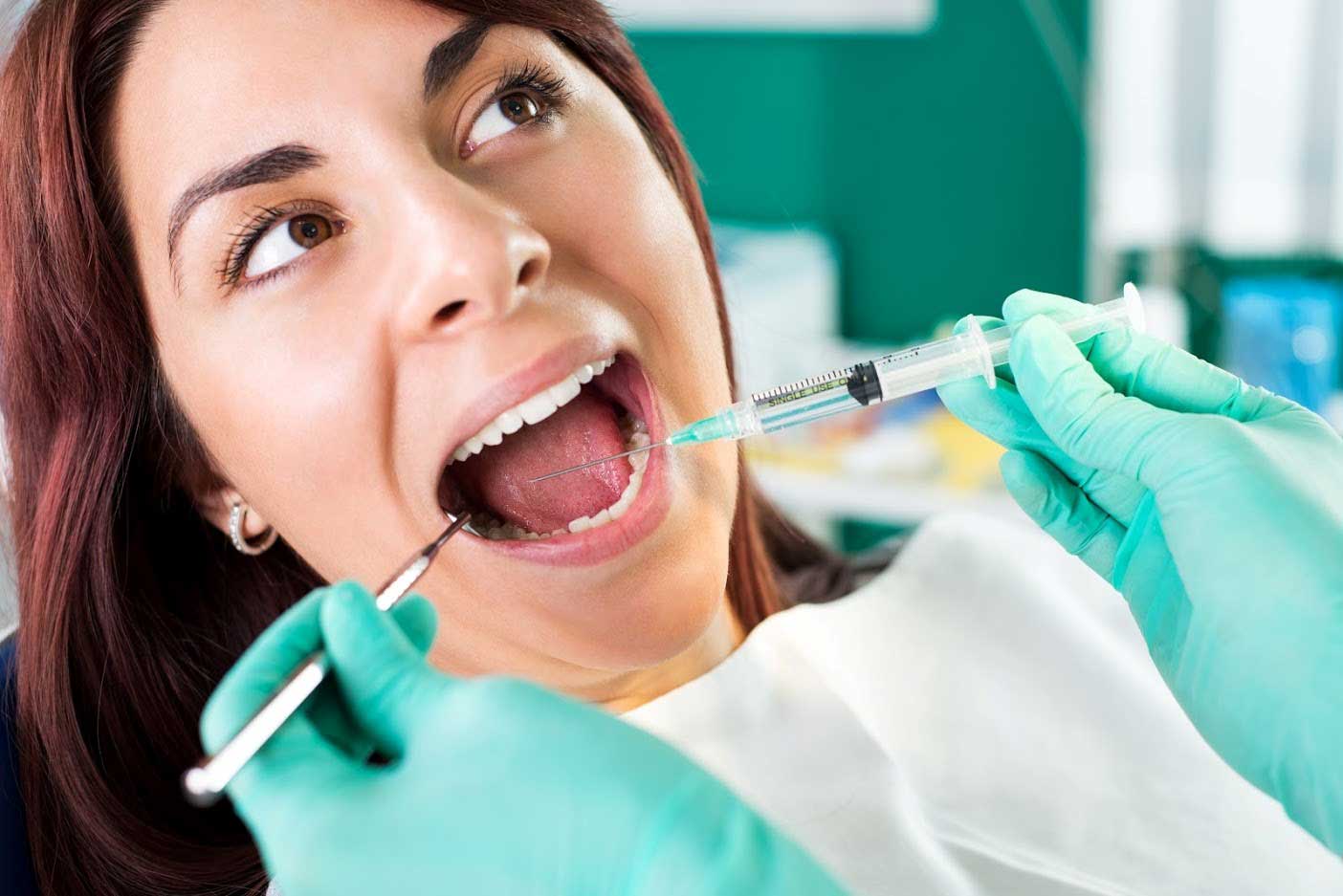Dental Anesthesia and Sedation Options

Modern advances in sedation and anesthesia have made dental work easier and more comfortable than ever before. You may wonder what anesthesia and sedation options you can choose from, and which type makes the most sense for your particular circumstances. Take a look at the following common options and their respective benefits.
Local Anesthesia
Local anesthesia sees regular use in a variety of dental procedures, from cavity and crown work to root planing and scaling for periodontal disease. Common local anesthetic drugs used in dentistry include lidocaine, articaine, prilocaine, mepivacaine, and bupivacaine. These drugs impart a numbing effect that lasts for 30 to 60 minutes.
You may receive a local anesthetic either as a gel rubbed onto your gum tissues or as an injection into the part of the mouth that requires treatment. Once you report a feeling of numbness, your dentist will then proceed with the necessary work. You won't experience any sedation or altered consciousness from these drugs.
General Anesthesia
In contrast to local anesthesia, general anesthesia affects the entire body and produces a state of unconsciousness. This option makes sense for lengthy, extensive oral surgeries that might cause more pain than local anesthesia can address. It also serves to keep patients completely still for procedures that require extreme precision.
General anesthesia may prove useful even for procedures that don't usually call for it. For instance, if you suffer from severe fear and anxiety in the dentist's chair, you may benefit from simply going to sleep and waking up after the procedure has concluded. Autistic patients and others with special health issues may also need it.
If you receive general anesthesia, the dentist will administer a controlled, steady supply of the anesthetic through an IV drip or a face mask. Examples of general anesthetic drugs include propofol, ketamine, diazepam, isoflurane, desflurane, and methohexital. You'll breathe through an endotracheal tube while anesthetized.
Not everyone can or should receive general anesthesia. If you have a history of neurological problems, internal organ disease, acid reflux, or previous bad reactions to anesthetic drugs, your dental team needs to know so that they can monitor your condition with extra care or avoid specific types of anesthetic medication.
Nitrous Oxide Sedation
Nitrous oxide, also known as laughing gas, provides a quick, simple form of sedation. You'll inhale a mix of nitrous oxide and oxygen through a face mask, with the balance of these two gases controlled by the dentist to ensure both safety and optimal results. This mild sedation wears off quickly once you stop inhaling it.
Nitrous oxide sedation works well for younger dental patients and anyone who needs only a mild sedative toward the beginning of a routine dental procedure. Other forms of sedation last longer, may convey deeper effects, and usually require you to arrange for safe transportation home.
Oral Sedation
Oral sedative drugs can provide moderate levels of sedation that can last for hours, with no need for you to breathe through a face mask. You'll receive these oral drugs in advance, taking them about one hour before the actual procedure. Dentists commonly use a Valium-like drug called Halcion for oral sedation.
Under oral sedation, you will feel deeply relaxed and either mildly or extremely groggy, depending on the dosage administered. However, you should still manage to understand and respond to your dentist's questions and instructions. This level of sedation sometimes goes by the name of twilight dentistry.
IV Sedation
IV sedation employs the same kinds of drugs as oral sedation. The main difference involves the speed with which the drugs work. With an intravenous drip sending the sedative directly to your bloodstream, you will experience moderate to deep sedation and will be generally unable to perceive all but the most aggressive stimuli.
As in cases that involve general anesthesia, dentists use great care when administering IV sedation. Rest assured that your dentist will monitor your vital signs and adjust the sedation level as needed to keep you safe.
Davis & Beyer Dental Health Professionals has the skill, tools, and experience to provide you with the ideal type and degree of sedation or anesthesia for your dental needs. Contact our office today to learn more.







